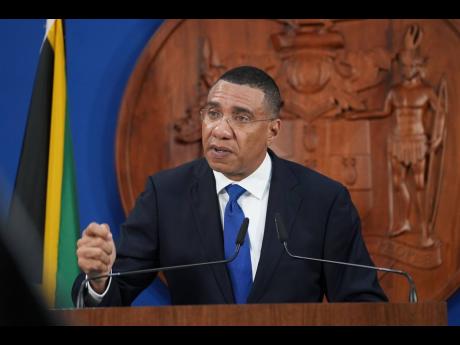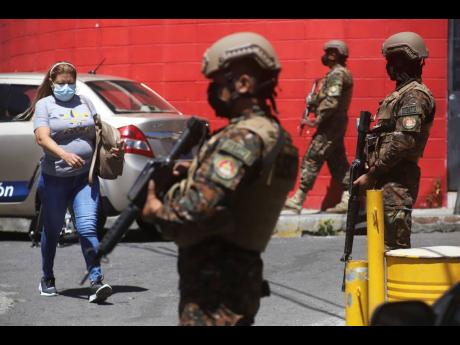Jamaica can learn from El Salvador’s success against gang violence – Holness
Prime Minister Andrew Holness has pointed to the success achieved in crime-fighting in El Salvador as what can be achieved in curbing gang violence, if the right approach is used. He was speaking at last Thursday’s national security seminar under the theme ‘Defending and Securing Jamaica’s Development: A Strategic Security Analysis’, noting that the Central America country had a murder rate higher than Jamaica’s, but that it had been brought under control using extreme measures.
“They recognised they had a problem [and] their executive acted. They recognised that if you don’t tackle the violence producers, it won’t stop at inner-city people, at poor people. Because it is only when it affects a certain geography, a certain area that it apparently becomes a matter of concern and the State must act. If we do not act and act decisively, our gangs will be embolden and they will intensify their threats.”
In comparison to the states of public emergency used by his administration, Holness said, El Salvador had to take extreme measures and their murder rate is now seven per 100,000 persons.
CRACKDOWN
El Salvador has long suffered from cycles of extreme violence linked to powerful criminal gangs. Under President Nayib Bukele, the government initiated an unprecedented anti-gang crackdown in response to a weekend surge of killing last March. Since declaring a state of exception in March 2022 that suspends certain constitutional rights, the government has arrested more than 53,000 suspected gang members, doubling the number of people held in the country’s prisons. Almost two out of every 100 Salvadorans is now in jail, the highest reported incarceration rate in the world.
It is reported that despite his iron-fisted policies, the Salvadoran president remains popular, with approval ratings that have hovered between 80 and 90 per cent.
Holness said states of public emergency (SOEs) have deliberately been dragged into obfuscation. The parliamentary Opposition People’s National Party has refused to support an extension of the measures, with leader Mark Golding suggesting that the way in which the extensions have been done could be in breach of the Constitution. Holness countered that point.
“The fact is that whenever the SOEs are used, they are used according to the prescription of the Constitution. Lives are at eminent risk, there is a significant threat to a community and we use them with great consideration for the rights of the citizens, and they are used to great effect,” he insisted.
Meanwhile, in her presentation at the event, Minister of Legal and Constitutional Affairs Marlene Malahoo Forte warned against the misuse of human rights.
“Human rights must not become a tool for denying security to the public and the State, a balance is required; a sensitive and difficult balance between freedom and dignity of the individual and national security and public safety.”


